Find Your Passion
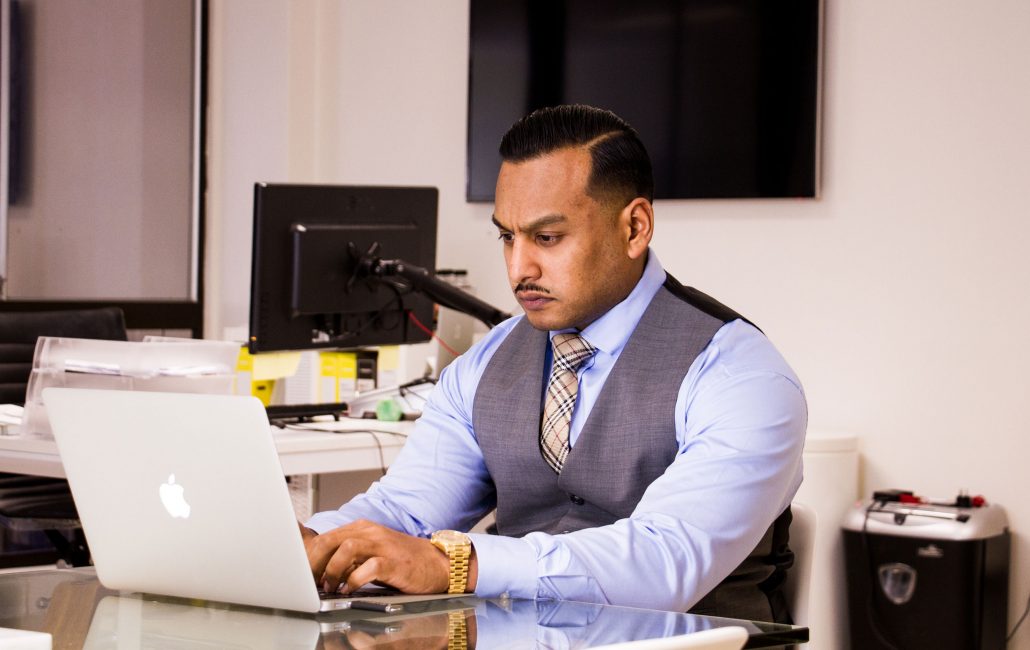
Finding something you are passionate about and doing it for a living, can transform your life. It’s important to always strive to find your passion so that you can jump out of bed excited to take on life every morning. The definition of passion in the dictionary is “any powerful or compelling emotion or feeling.” Your passion is the reason why you live your life and just the thought of it can keep you up late at night with excitement. Sometimes passion can be known as your “why” or your “purpose”. Whatever it is, it needs to be strong enough to go beyond the dollars and other superficial outcomes of being successful. It’s the thing that you would continue to do, even if you didn’t get paid for it. You would just do it for free. For example, I’m obsessed with business and property, however it is not necessarily my “why” or “purpose”. My true inner passion lies in helping others improve something in their life. That could be physically, spiritually, or financially. I get a real kick out of serving others and helping them create better futures for themselves. I am very fortunate enough to be able to follow my passion through my businesses I have established.
I continue to observe people around me who struggle to find their true passion with what they do for a living. I also observe some of these same types of people regularly trying to escape reality by resorting to drugs and alcohol or any other method of burying their head in the sand. Many people hate their jobs or the businesses that they are in and know they want to do something different, but never make the choice to make a change. One of the main reasons why they haven’t changed is because they haven’t figured out what their passion actually is. However sitting around doing nothing or continuing to work in an industry that you hate without plan won’t help you to discover you passion. If your current situation is not working for you then trying something different will bring you at least one step closer to finding your passion.

For example, I never really knew what my purpose in life was up until my recent years in business. I studied and invested in multiple businesses in various industries for almost ten years. It took me a while to discover what I truly enjoyed and also what I was naturally good at. I finally found an industry that I was happy to study and learn for, without feeling like I was being forced to do it. Enjoying learning about entrepreneurship and property has allowed me to channel this into a business that I can not only benefit from financially, but also emotionally. I am still involved in various industries through business, where I hold strong interest, though my main focus and enjoyment comes from property.
Setting short-term and long-term goals is helpful for anyone trying to find their purpose, as achieving targets and reaching milestones can give you a great sense of fulfilment and motivation. This can fuel passion and encourage new spirits and direction on your path to success. Hitting short-term goals can keep you moving towards finding your purpose as you will be achieving specific smaller goals on a daily or weekly basis. Long-term goals are for when you start to think big. These goals can be what you want to achieve in the coming years that involve the bigger picture. This includes your exit strategy, growth plan or simply a really significant aspiration.

One of the reasons why successful people have a better understanding of what their purpose is, is because of their attitude and perspective on life. Maintaining a negative view or a depressed outlook or remaining stuck in a rut puts a curb on motivation. If you’re convinced that finding your passion is going to be hard, then it will most probably not happen to you and you will remain in the same position. It’s important to adapt the positive mindset that you can do whatever you love to do in life. One of the best ways to strengthen this type of mindset is to surround yourself with people who are already living the lives you aspire to live yourself. Maybe its time to expand your network to help you associate with people who follow their passions.
Another reason why people lose focus on their passion, is because they end up only putting the spotlight on making money. Chances are, if you’re chasing money, you’ll probably end up with nothing at all. If you want to spend the majority of your life doing something you love, then the best method is to start treating financial rewards as a bonus. This is where true wealth is acquired. To me, the difference between being wealthy and rich are incomparable. Being rich allows you to buy the flash cars and expensive jewellery. While being wealthy on the other hand is being happy and financially free.
In my experience of being an entrepreneur, focusing on what I can offer, setting goals and being aware of my positive attitude have proved helpful. After having learned valuable lessons in my earlier businesses, I began to notice that it’s not necessarily the industry you’re in, but it’s the life experience that matters. After each goal was accomplished, I was always given entrepreneurial inspiration which made it easier for me to eventually find my passion. The key is to keep trying new things as it will always bring you one step closer to showcase your purpose.

ASK A LUXLAND PROPERTY INVESTMENT EXPERT TO HELP GROW YOUR FUTURE
Power Of Struggle

The power of struggle can be a great tool to use when propelling forward in business. Many, if not all successful entrepreneurs have all been through times of struggle at some point in their lives. The definition of struggle in the dictionary is, “to contend with an adversary or opposing force.” These adversaries are usually what helps to shape us as entrepreneurs, and gives us unique character moving forward. We have all struggled at some point, and have felt like the whole world is going to cave in. However what comes out of it on the back end is a better understanding of how to deal with those particular situations moving forward. Dealing with struggle teaches us strength, and forces us to be solutions focused, rather than always living the good life where we can sometimes plateau in our progress.
Struggle can come in many forms, from having no financial backing to start your own business, to experiencing a power struggle with a work colleague, or to simply having no money to put food on the table. I have experienced many of these types of struggles and adversities in the past which I can now proudly say I have learnt to deal with this type of stress quite easily. Every type of struggle has taught me that the road to success is never easy, and what really counts is how you deal with your obstacles and how well you can come out the other end. I have yet to meet someone ultra successful who has not gone through some sort of struggle in their time. If they haven’t, then they simply would not value their position like most of the other successful individuals. For example, people who win the lottery usually lose their winnings quite quickly as they have not learnt the value of money. Those who go through hardship and tough times to earn their wealth, like me, are usually more appreciative of their earnings as the struggle to get to their position has been a more difficult destination to reach.
Some of the types of struggles I have been through which have been outside of my control have been failed business ventures, bad partnerships, media defamation, illness, major financial loss and even death threats. All of these problems felt like hell at the time when they had occurred, however it forced me to think creatively, alternatively and aggressively. There was no other option but to find a solution to keep moving forward. It taught me to possess a mindset that had the ability to harness and embrace any problem that was thrown at me. If I had a failed business venture, I would learn to fail quickly and move on with emotions being completely detached. If I had a bad partnership, I would study different types of human behaviour and learn what motivates others to act in a certain way. This would help me to understand the intentions of others. Negative media publicity? Hire a gun public relations agent to put out the fires. Learning to accept that things are going to go wrong is paramount in business, as this helps the process of moving forward quicker and easier, rather than dwelling over the problem.
I continue to put myself in a position of struggle when it comes to property investing and business. For example, when I invested in my first few properties, I worked hard to save cash to put towards a deposit, and as soon as I had enough, I tipped it into the investment. I was then left with no money in the bank and would have to start all over again. I did this numerous times in the startup phase of accumulating my first few properties. This constant position of struggle taught me to be highly disciplined with my finances which I still implement the same habits from those times today. Through this strict method of discipline I have been able to acquire a substantial property and business portfolio. Even the famous American investor, Daymond John says “ The Power of Broke essentially refers to that internal reserve we each tap into when we don’t have anything else or any other resources to tap into.”

Many people who give business a go, tend to quit quickly when the times get tough. I’ve encountered many scenarios where people start businesses and it’s all rosy and sweet in the beginning, then when things start to get hard, they give up. This results in the business owner not learning anything as the success of a business is usually measured on how well you can deal with problems. As soon as there is a sign of struggle, many people tend to quit and move onto another project. The key to success is pushing past these struggles and learning how to deal with issues ongoing. Eventually whenever problems arise within your business or just life in general, you are able to push through and continue to move forward. Becoming a master at this will only come with experience.
When you have nowhere else to run, turn or move then this is where you get the most creative and start thinking of innovative ways to push through those barriers. This type of conditioning forces us into survival mode, making us truly believe in our untapped strength and spirit. When it comes to business and property investing, finance is just a fraction of the overall process to get things going. Willpower, imagination and resourcefulness are major contributors when pushing forward into success. Next time things start to get hard, don’t be quick to give up. Think of the struggle as an investment into your future, teaching you to be stronger and to think outside the box. Embrace it and learn to love it as the positive results will show soon enough.
We Must Conquer Failure

Fear of failure will hold some of the best individuals back at times. Many of us are conditioned with the concept that the lack of failure means greater success. The truth is that the lack of failure usually means the lack of taking action, which is one of the most important components in success. When I was growing up, failure was looked at as a negative thing, and you should be ashamed about it. Our mistakes and failures were rarely talked about as they were viewed as an embarrassment to the family. My father would scold me for days, sometimes weeks if I had done something wrong. Being around this type of behaviour was difficult growing up as even though I would learn not to do those things again, I would be afraid to take any risks at all due to the fear of failing. It wasn’t until I moved out of the family home, that I realised that failing was an important key to achieve success.
Successful entrepreneurs are highly aware of the problem with how society views failure. Going against the grain, they recognise the usefulness of failure. As American rapper and entrepreneur, Sean Combs also known as P-Diddy said, “You cannot achieve success without failure.” UFC World Champion, Conor McGregor, has a similar point of view. “It’s not really that much of a big deal – you brush it off and you come back. Defeat is the secret ingredient to success.”
From dealing with rejection, to losing money, everyone has experienced that heart-rate-rising, gut-wrenching ill feeling. Even small failures can haunt you like an emotional ghost, causing plenty of self-doubt. I was fired from nearly every job I had when I was younger. In my early days of doing business, I almost lost everything. I have probably failed more times than succeeded in my businesses as I took huge risks that led me down a very dark past, and I even lost the support from some of the most important people in my life. However, if I never took action, or never gave it a shot, then I wouldn’t be in the position I am in today. It was from my various adversities, that I discovered that failing in business was my true asset in learning.
Trying my hand at different businesses without any experience or industry knowledge led me into many depressed states. It was an emotional rollercoaster dealing with the extreme highs one day and then crashing down to rock bottom lows the next. Fortunately, my early starts in property helped me bounce back whenever I was down for the count. Property, being the quiet little achiever over the years, always pulled through with profits to help me through those difficult financial times. It allowed me to either sell, refinance or further develop if I ever required. Having that buffer (property) in place was extremely critical in order to give me the confidence to pursue other business in new industries. I was able to fail at certain things in those industries, which helped me eventually learn to become an expert in the specialised field.

Overall, the business experience I have received from the past 10 years of failing has been priceless. Many past associates have criticised me for having business ventures that have failed to profit or even by having business partnerships that have attracted bad publicity. If I didn’t go through these hardships in entrepreneurship then I wouldn’t be here today. By failing early and trying new industries with different types of people, it enabled me to gain a variety of skills in many areas of business that benefit me today. Also, the more times I now fail, the easier it is to come back and conquer it.
While it’s useful to reflect on your own failures, the real payoff comes when you spread the lessons across to your network. Many successful people are more than happy to share their mistakes with others, as they do not wish those failures upon anybody else. I always recommend other business owners and leaders to network on a regular basis to talk about their respective failures. The reason for this is because successful people don’t see failure as catastrophic, they see it as a good data point to help guide others in their next attempts.
One way to combat fear of failure is to always ask for help. Many are afraid of looking like a fool when asking for help, as if they’ve failed because they don’t know absolutely everything there is to know about business or property investment. The pleasant truth is, that when you sincerely ask for someone’s help, you make them feel appreciated and therefore they are more than happy to help you. An expert or professional who has specific knowledge and value will ultimately feel good about helping you advance towards your goal. My businesses are about offering value and helping others. I always feel great when someone asks for my advice on something even if it is free of charge.
Your attitude towards failure can make all the difference. You must understand that failures are merely stepping stones towards the path of success. Many successful people have failed time and time again before reaching greatness. Steve Jobs was fired from the very company he began. He ended up right back there as CEO of Apple. Oprah Winfrey was fired from her first job in television. ‘The Oprah Winfrey Show’ became one of the highest ranking shows in American history. Abraham Lincoln was defeated in his run for president in 1856. He was elected in 1861 as the 16th president of the United States of America. Michael Jordan was cut from his high school basketball team. He went on to be an all-time NBA superstar legend. Most recently UFC’s Conor McGregor was defeated by rival fighter Nate Diaz. This was a massive blow for the Irish mixed martial artist. McGregor went on to fight in a highly anticipated rematch, claiming a majority decision victory. He proudly states, “It’s a tough pill to swallow but we can either run from our adversity or run to our adversity, tackle it head on and conquer it. What defines us is how well we rise after falling.”
Take Ownership
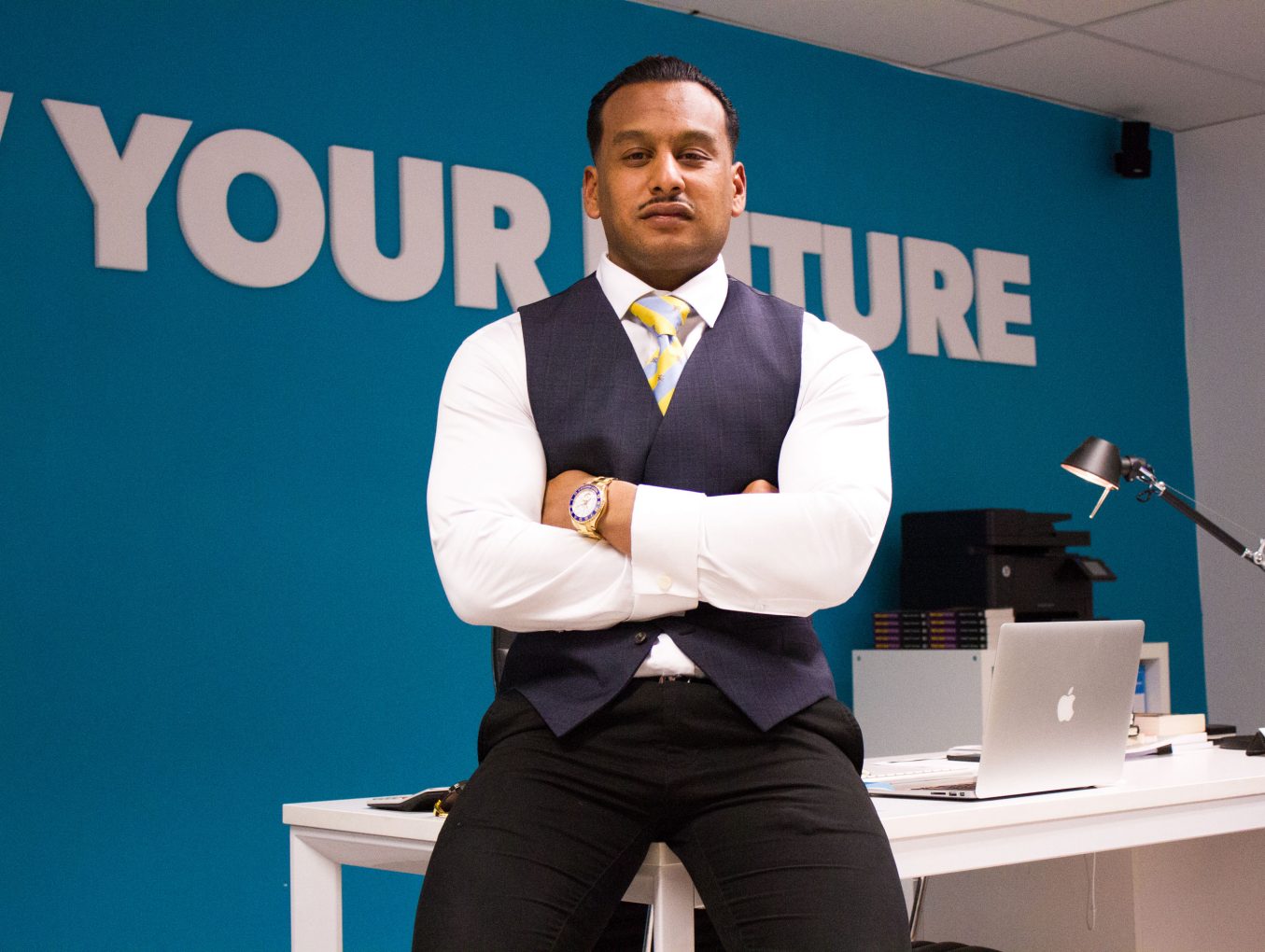
Taking complete ownership and full responsibility for your life is critical in business and property investment. It’s not just about doing a job or working on a project, or even delegating out a task, it’s about making it your objective to see something through on your own terms. There are many different qualities and habits that must be developed to become successful in business, but there is no better trait to have than taking complete ownership of your life. Ownership is taken, rather than being given. The individual cannot simply be appointed the all important quality. It happens when one will come forward and state with confidence, “I’m going to work, grind, hustle, fight or do whatever it takes to achieve my goals. I’m going to take responsibility for my life and accomplish what I set out to do.” People who take ownership have the habit of exposing problems as those issues can get in the way of their goals, therefore they want to overcome those problems through fast and effective solutions.
A large number of people struggle to stop playing the blame game. The reason for this is because it is easy to blame something that you cannot control. It’s an excuse for why something hasn’t gone your way. For example, many blame their partners when a relationship gets rocky, or we may blame the government for enforcing too many rules and regulations in order to enter the property market. I have heard many would-be investors complain about our tax system and how we are so hard done by, pointing the finger at our government all the while not investing in their future. They are then missing out on opportunities to get into the market whilst almost expecting a magic wand will wave itself over them producing a multi-million dollar business empire.
Many of us experience tough times where something outside your control has a negative impact on you. I have experienced many rock bottom moments in business and I must admit I have pointed the finger at others on numerous occasions. It was simply the easiest method to justify my failures in business and in life. One of those rock bottom moments involved me being in a toxic business partnership, which drained me of most of my net worth at the time, which ultimately saw me lose almost everything. I was in debt to my eyeballs and had the majority of my wealth taken away from me. I didn’t even have any money for food. I started to blame others for my failures and losses by pointing the finger at those that I felt were responsible. A major turning point in my life occurred one day when I was at work and I had no money for anything, even food to feed myself. My girlfriend at the time, had packed a meal for me to help get me through the day, so I went to the common kitchen to heat the meal up late one night and thought to myself as I watched the microwave plate spin, that how grateful I was to have at least that one meal. As I went to take the food out of the microwave, the food had heated up so much that the container was stinging hot and I ended up dropping the whole meal all over the kitchen floor. I had no choice but to pick up the dirty food, with tears rolling down my face, and put it back in the container and eat it. This would have to be one of my lowest moments in life. At that exact moment, whilst I was eating my food covered in floor germs, I decided I was no longer going to blame anyone for my losses any more. I realised that those who I was blaming were not eating chicken and rice off a dirty kitchen floor. It was me who was to blame for this whole situation I got myself into and it was time I started to take ownership of my life and make some massive changes in order for myself to move forward.
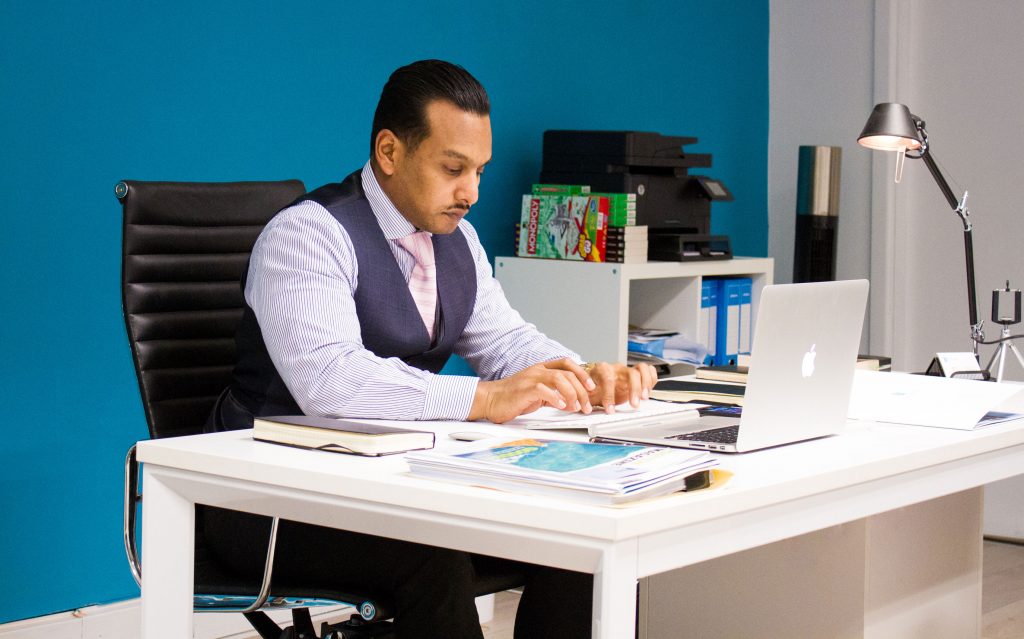
It is absolutely important that you eliminate the excuses and start taking responsibility in every area of your life, as this will reflect on everything you do. There is no way we can ever grab a hold of our future completely when we are too caught up in the terrible habit of playing the blame game. Now blaming others would be okay, if it did anything such as helped or made a difference. But the problem with blame is that even if you are right or that you can prove it’s someone else’s fault, blaming others accomplishes absolutely nothing. Blaming others will only ensure that you will be in the exact same spot, or worse off. It does nothing to contribute to solving the problem.
A good example I can use is through a close friend of mine, let’s call him Daniel. 15 years ago, Daniel was advised by his father that he should buy an investment property to kick start his portfolio. He had no idea what property to buy so he just purchased something that his father recommended for him. It was a brand new off the plan two-bedroom townhouse in a local regional suburb. At first Daniel rented the property out as an investment property and then later moved into it making it his principle place of residence.
Unfortunately, the property never really performed and it only started to see a rise in value in the last 4-5 years as the rising tide of property has lifted all ships. Till this day Daniel blames his father for the poor investment choice and he still has not added any further properties to his portfolio since. For 15 years he has blamed others for his poor performing asset, which even if he is right, he is still in the same position as if it were his own fault. It’s important for Daniel to take reasonability for his choices and work on solutions to help grow his portfolio further.
It is paramount to take a long hard look at your situation and choose where to put your energy and focus. The only true way to turn a problem into an opportunity is to focus on what you can control, by doing the hard work and making the tough decisions. At some point you have to stop talking and start doing. Investors need to put a plan in place, focus on taking action and work on solving a problem in your situation to help you get on track to business success. Are you taking ownership of your life?
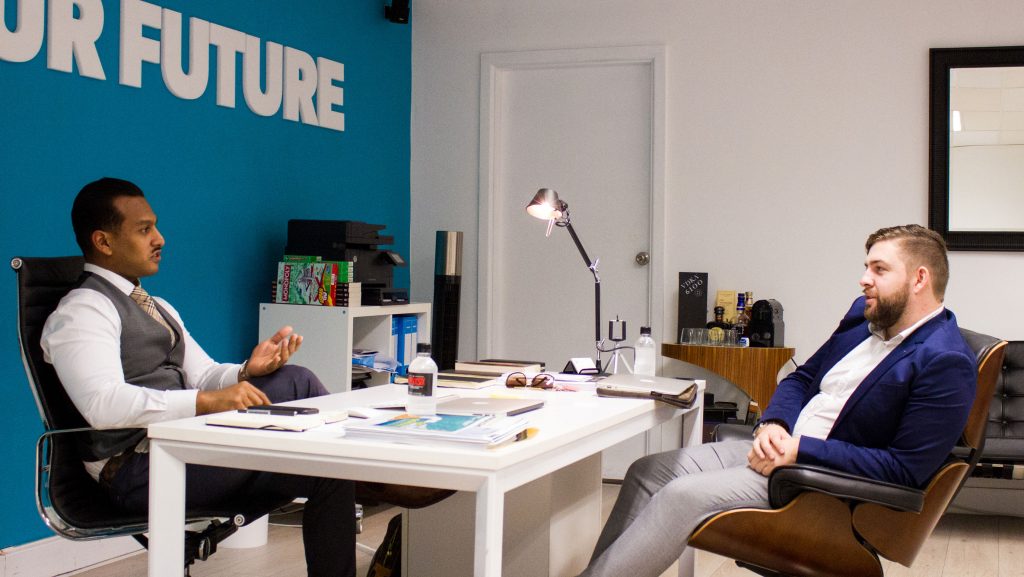
Comfortable Being Uncomfortable

As a property developer, investor and business owner, I’ve seen that one of the most detrimental things you can do in your life is to stay comfortable and refuse to step outside of your normal everyday routine. We have all done it, where we start to think that if we step outside our comfort zone, that something bad might happen. It’s often called the fear of the unknown. I’ve learned the hard way that staying comfortable will eventually bring you more pain and stress in the long term. The only person that can prevent this from happening is you. For example, when I was 25 years old, I was finishing up working at a Kings Cross nightclub that was soon to be closing. I was fortunate that one of the owners of the business, a successful entrepreneur, served as a mentor to me, who I always looked up to that motivated me to go out and run my own show. However, I still contemplated for a long time whether to step out on my own and many people encouraged me to stay “safe” and “secure” and to find another job. Fortunately, there were no jobs available for me to take in the nightclub industry and I was left with no choice but to take the leap into entrepreneurship and open my own nightclub! That particular business ended up being short lived due to a legislative hurdle, however it taught me so much about starting a business. From then on I have bought and built many businesses till this day. I haven’t looked back since as it was my best decision I ever made to get out of my comfort zone and experience business on my own terms.
I am now 33 years old and have faced many adversities throughout my business life. The challenges of running my own businesses do not stop as I encounter problems on a daily basis. I have learned to enjoy being uncomfortable as I have now embraced risk and struggle as it is all part of the process in progressing. When you learn from that knowledge and experience, you’ll find your purpose in business, despite the turbulence around you. To get to this point, you must continually step out of your comfort zone. The comfort zone, as defined by Lifehacker, is “Behavioural space where your activities and behaviours fit a routine and pattern that minimises stress and risk” – key words being STRESS and RISK. When we step outside our comfort zone, we’re taking a risk, and opening ourselves up to the possibility of stress and anxiety. I have learnt to crave stress and anxiety as I am now conditioned to know that success could possibly be around the corner. My worst case scenario is that if I fail, then I can take a lesson away from it. Too many people care too much about what other people think, and will get embarrassed if they fail. Society tells us we should fear failure, however if we never fail then we never learn. Some of the most successful people in the world have failed many times more than the average person, however remain to be the most influential in their specific field.
One of the main factors of why people do not step outside their comfort zones when it comes to property investing is because of fear. Fear, in combination with a lack of knowledge and education can force people to remain in their comfort zones and ultimately do nothing. This is one of the reasons why so many people are unsuccessful with their dream property portfolios. They constantly ask themselves, “what if the market tanks?” or “what if interest rates rise?”. These concerns usually take over the whole investment process and people will sometimes look at the easiest option to just do nothing at all. In actual fact this can be the biggest loss of potential profits if looked at in the long-term!

We live in the luckiest country in the world, with some of the high quality standard of living, with the greatest opportunities and access to the best resources. It is evident that one of the reasons many do not achieve a level of success is because we are not forced to step out of our comfort zones as life is too good as it is. We are very fortunate to live in a country that is envied by foreigners, however it may be our curse as it does not push many of us to take action to take the leap out of our comfort zones in order to break through barriers to success. This explains why so many people stay working in jobs that they despise and continue to just dream about financial freedom.
I relate business success to physical fitness quite a lot as I have experienced positive results in both. If our bodies adapt to the same workouts, we become comfortable as our bodies recognise the stress and is prepared for the physical activity. To push through a plateau, we must get comfortable being uncomfortable. We need to embrace pain, then we will see change. For example, let’s picture yourself doing a bench press workout. Let’s assume you can comfortably perform ten repetitions on your own before you start failing. On your last set you decide to engage a spotter to watch over you for encouragement and support as you are tired from your workout and just want to play it safe. You perform your usual ten repetitions with reasonable ease and expect to finish as your workout is now finished. However, before you can rack the weight, your spotter yells at you to do one more. You struggle, but you manage to just get the bar up off your chest. Then, your spotter bends down and screams “ONE MORE!” You painfully oblige, however you can’t feel your chest and your arms are about to fall off. With some assistance you manage to get the 12th repetition out. Now your spotter says “this is the last one and that’s it! I’ll spot you if you fail”. You attempt to perform the painful exercise outside of your comfort zone, however you fail halfway up the movement and are helped to safety from the spotter. Where do you think the most growth occurred throughout the exercise? The last 13th attempted repetition. It is very similar in business, when you reach that breaking point, that is where you will usually see change.
Procrastination is ultimately the biggest killer when it comes to property investing. Sometimes the whole finance process is a little intimidating or the lack of education is contributing to having a fear of the unknown. Taking the first step and taking action can sometimes be the only hurdle to move forward. Most of the greatest lessons in property investing are learnt by taking risks and living outside of your comfort zone. Surround yourself with others who have succeeded before and strive to educate yourself to help minimise or eliminate fear. Just like in the gym, find yourself a property investment or business spotter! Being around these types of spotters will help you expand your knowledge and your capabilities that will make you grow as a person. Learn to be UNCOMFORTABLE.
Recognise Your Strengths
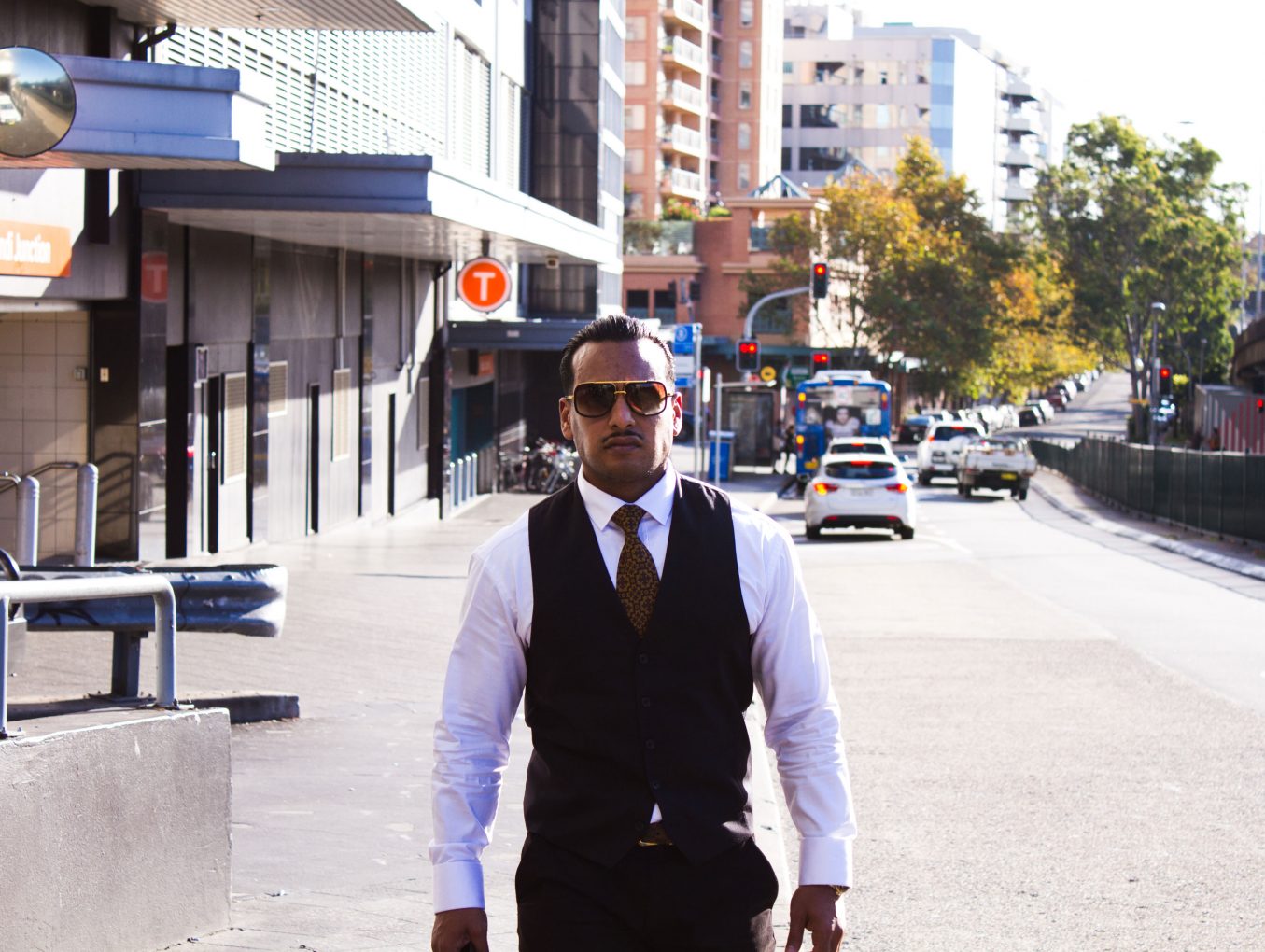
It sounds odd, but the simple concept of self-awareness has tremendous power in determining your future. The mantra of self awareness for property investment success is not just for the super rich and successful, self-awareness is about acknowledging your strengths and weaknesses and is one of the most important traits to master when it comes to building your own success. Essentially, the more you pay attention to what you are good at, and what you are not so good at, the better you’ll understand why you do the things you do. The more you start to learn about yourself, the easier it becomes to improve your performance. Knowing yourself with clarity will help lead you into the right property deals and business environments.
When we develop the ability to recognise what we are not particularly good at, we can quickly start to excel in the areas where our strengths lie. Delegation is paramount once weaknesses have been noted, as relationships can be formed to help start any type of business. For example, my area of expertise in the development department of our company is building and maintaining relationships with our partners and clients to help grow the business. They call me the “business guy”, as where I fall down is when it comes to the technical product. My business partner particularly excels in this space, therefore we make an excellent team. I’m the business person and he is the product person. Together we have recognised each other’s strengths and weaknesses and have partnered up to achieve something we would never have been able to achieve on our own. If we are both weak at something in particular, such as legal work or tax accounting, we know when to reach out for assistance, rather than waste time and energy trying to tackle a problem on our own.

Not everyone has the resources around them to make these acknowledgements that easy. Sometimes we are surrounded by people that tell us that we are doing great and don’t ever give us the necessary feedback that we require to improve. For example, there has been plenty of talk of late, regarding Millennials having a false sense of inflated self worth, as they are constantly told how special they are and that they have everything handed over to them without them having to work for it. What happens when these individuals face the real world, they ultimately suffer as they have not acquired the necessary skills to excel and survive. We live in a time where anyone can look like a super star athlete, or a rock star baller especially through social media. This can actually devalue the work of somebody who has actually achieved this level of success through real work and dedication. In summary, the majority of this generation may grow up with a lack of self confidence and an inability to reach out for help when they need it.
Without being honest with ourselves, we are just lying about who we really are. All we do is delay how much we could be doing for ourselves and others. You need to ask yourself the honest, hard questions that will give you a strong assessment of yourself, even if you might not like the answers. When I first started out in property investing and renovating, I realised I was not handy with tools in any way shape or form compared to my abilities of being able to find a good property deal through my network of connections. I was not shy to physical labour, as I had spent a number of my younger years as a painter and concreter. However I didn’t particularly have a passion for it, while many of my peers all went on to be tradesmen and enjoyed their lines of work. I quickly recognised this was a weakness of mine and therefore reached out to the relevant professionals to help out with all the renovations I made on my properties. If I had tried to force myself to learn these skills, I would still be on my first investment property!

The internet is cluttered of pictures with quotes, encouraging people to do things themselves if they want things done right. The problem with this approach is that people fail to build the necessary team to achieve success, especially in property investing. Knowing where your knowledge level is at, is critical to help guide you to who exactly to engage to help excel your portfolio. If you haven’t achieved what you are striving for, then it makes sense to make contact with people who have succeeded in that area you are working on.
Many of us underestimate our strengths and overestimate our weaknesses. Letting your ego get the better of you can delay you from achieving your goals you are dreaming of. It is important to focus your efforts on where you can make the biggest impact and achieve maximum return on your time and energy. Surround yourself with others who continue to challenge you and help you understand how you can be better for an improved life and future. Build a team that forces you to LEVEL UP!

Obsess Over Success
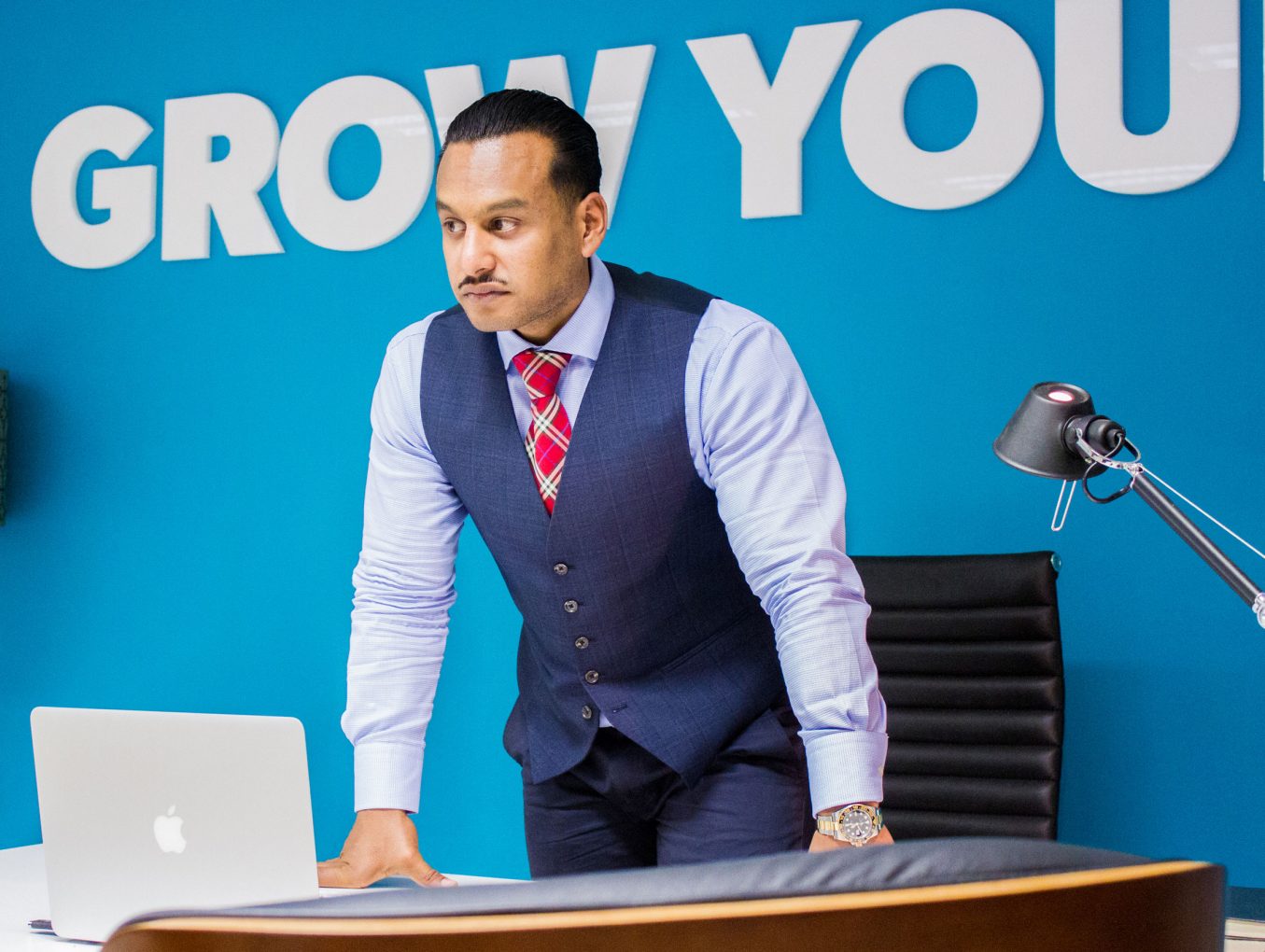
Having an obsession when I was growing up had been looked at as a negative characteristic. It was almost looked at as some sort of sickness or condition in our household. Like an unhealthy fixation. Even the definition of obsession in the dictionary is “A persistent disturbing pre-occupation with an often unreasonable idea or feeling”. Every time I started to really enjoy something as a kid, I was told to stop or pull back, as I was becoming “too obsessed”. I was never allowed to play sports as a child as I was told that I was not able to concentrate on anything else such as my school work and studies. I was always made fun of at school as I loved playing soccer in my lunch break as this was the only chance I had to play as a kid. Other kids would tease me and call me a “try hard” or “obsessed” because I love to play and kick the ball so much. I followed all the professional teams and would know all the players names and numbers off by heart. For some reason loving something too much was looked at as uncool and unaccepted.
When I was 16 and no longer living under my parents guidelines and rules, I took up boxing at my local gym. I soon became obsessed with this sport and later showcased my skills on those who previously made fun of me in my younger years. This obsession with this sport led me to constantly improving myself by getting faster, stronger and fitter through a combination of lifting weights and performing rounds with my trainer in the ring. I soon realised that the more obsessed I became with improving myself, the more respect and credibility I earned in society. It was like I had some sort of value to bring to others as people constantly asked me for hints and tips on training and diet. It felt good to be recognised for my obsession and passion, and I was able to help others improve themselves through sharing my knowledge and experience.
Now I obsess over business. I obsess over property. I obsess over improvement and helping others. Some people still make fun of me or refuse to understand why I am so obsessed with my work. Others support it, feed off it and take motivation away from it. My business partners, employees and clients are all obsessed with improving themselves. They are obsessed with success. Not just in business but all aspects of life. They are all part of a culture that enjoy the process of building a better life rather than just dreaming of the outcomes and rewards. Improving yourself takes a lot of time, work, stress and commitment that a lot of people aren’t willing to do. This group of people who I consider my team, are focused on solving problems, providing value to the world and personal development. For example, one of my business partners is absolutely obsessed with presentation. He is always immaculately dressed, is a clean freak and is super detailed in all of his work. He will sometimes pull 18 hour days consecutively. Many are intimidated, and shy away from this type of behaviour. I love it and I take a lot of motivation away from it. It pushes me harder to be obsessed just like him so I can also succeed.
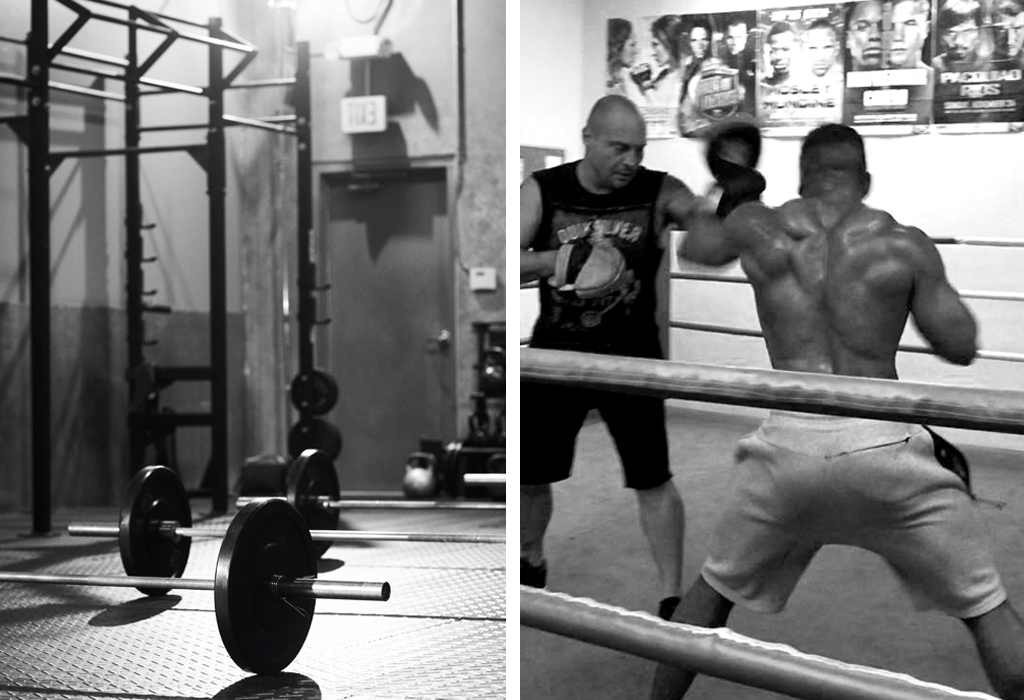
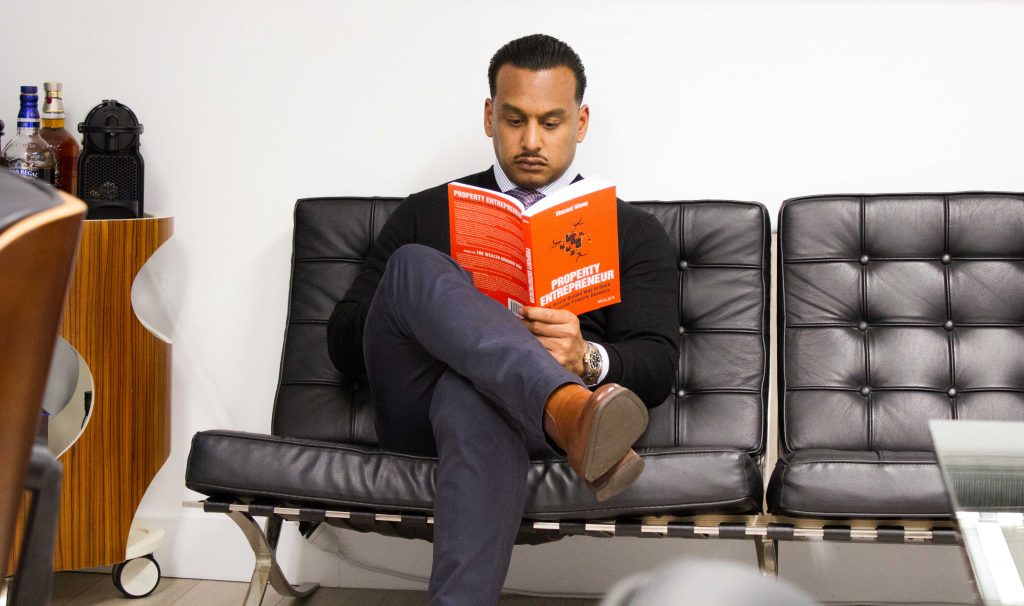
Some say if you must obsess, make it a healthy obsession that you are passionate about. I believe it requires to go beyond this. I believe it requires aggressive obsession. Being aggressive with your obsession is going to get you those big, extreme results you have always dreamed of. Sometimes you will have times where things get difficult. Sometimes it won’t be healthy and you may not enjoy it at some points in your journey, but that aggressive obsession may be able to help you get through those times where you don’t feel like going to work or when you get rejected from the bank manager on your next home loan. This aggression can sometimes help you overcome that mountain of stress, because your “why” far exceeds any pain incurred. The people who wander through life aimlessly never achieve anything noteworthy because they do not have enough hunger, desire, and will to change and become something better.
Weak individuals might view obsession as a negative trait, but the truth is, obsessing over your goals and how you will achieve success is what’s required to become successful. For example, I obsess over my wife. The result from that is that I have a very successful marriage. I am obsessed with putting in the time and effort to make sure my relationship with my wife is always improving. You have to advertise to everyone your absolute desire to succeed is authentic. Show them you love the process of learning, working and not giving up. Being known for unbelievable work ethic and solid values will get you the support you want and need to help you achieve your goals. Block out the noise and ignore the naysayers. Some people such as friends and family will drop off, no doubt. This is completely normal and it is the cold hard truth. They will tend to talk you out of your obsession as though you are committing a crime. They refuse to listen to your “why” because they just don’t understand why you are doing what you are doing, as they do not have the capacity to go and do it themselves.

When I first got into property development, some of my friends refused to support me. Some would even ask “What is Luxland?”, after talking to them about it for several years! They ridiculed me for reading books, attending workshops on the weekends and giving up large portions of my savings to put into my first projects. Many of those types of friendships no longer exist. They simply just didn’t understand what I was trying to do so they refused to learn. If I had listened to their recommendations of what I should have been doing with my life I wouldn’t be in the position I am in today. I love my obsessions and thoroughly enjoy sharing my wisdom and expertise with others.
When it comes to advising my clients, I try to make them obsessed with their ideas, purpose and goals. Then I allow and help them to obsess with making the process work and watch it succeed. The potential clients who I turn away are the ones that just talk about the rewards and the results. They are not interested in doing the work and sacrificing the time because they are too focused on the outcome and not the process. The truly successful follow up every action with obsession, enjoying the work that is required to be put in. The more you start to enjoy the process, the more rewarding it will become.
Start surrounding yourself with people who are obsessed with the same interests as you. For example if you love racing track bikes, start associating with the best riders in the country and go for a ride with them. If you have an interest in hairdressing, then find a hair salon who are the best in the industry and get your hair done there. You are in control of your environment and it is up to you to create it. If you show you are obsessed with your craft there will be room for you somewhere. Once you are in this environment your productivity will expand and you will see improvement almost immediately. Surrounding yourself with others who are just as obsessed with their goals as you are , will give you the greatest chance of making sure you achieve yours.
Location: Narara

Properties that are close to the the freeway and Gosford CBD will always show strength in any market conditions. Central Coast suburb, Narara has experienced some fantastic gains over the past couple of years. According to RP Data capital growth of the median house prices were up by a healthy 6.9%. In the last 6 months the median unit price for Narara have grown by 9.3%.
Narara is located 3km from Gosford’s central business district with a population of approximately 8000 people. The suburb is mostly residential but also holds Narara railway station on the Central Coast & Newcastle Line. It is the home of Narara Valley High School, a NSW government public high school, and St Philips Christian College Gosford (formerly Gosford Christian College), a private Christian institution educating from kindergarten to year twelve.
The types of properties the suburb includes are red-brick 3-4 bedroom homes on decent sized blocks, 1970’s apartment apartment blocks and more recently newly built townhouses and villas. Narara is very popular with all types of families, young couples and single income earners. Being so close to the freeway and located on the Sydney train line, commuters also find living in the suburb convenient.

With a current comfortable median house purchase price of $550,000 and a median unit purchase price of $432,000, Narara is a location within the Central Coast that is of increasingly high demand. Capital growth increasing at a strong rate in recent statistics and only set to continue moving up the ladder in a very stabilised manner in the coming 6-12 months.
According to information supplied by realestate.com.au the market is in so much demand, there has reportedly been 2014 property visits compared to the NSW average of 772 over the past 12 months. 28.1% of tenants in the area of Narara are older couples and families closely followed by established couples and families at 19.7%. Just behind them are maturing couples and families with a solid 11.3% giving the market confidence in finding a very settled and stable tenant to occupy the property with a reduced amount of time between occupancies.
A purchase by CEO Zah Azmi in Narara has claimed Luxland a three-bedroom, brick and tile home for $435,000. One Agency Wyoming’s Anthony Catalano has since appraised the property – located at 19 Adam Street, Narara – for $650,000. Luxland have decided to keep the asset and rent the property out for $540 per week accordingly.

Cosmetic renovations on the property included contemporary bathroom and kitchen features, with the cost totalling approximately $50,000. The assets position – placed in a quiet street, with amenities within a short distance – allows the location do most of the heavy lifting, especially due to the recent Central Coast housing boom – sentiments that are echoed by Anthony.
“You can almost guarantee to make a profit from a bread-and-butter property like 19 Adam St, Narara. It’s made of brick and tile, in a central location, on a decent sized block and part of a strong seller’s market.And with a huge amount of infrastructure being put in place within the Central Coast, you can definitely see why the demand is so high right now to enter the market now before the Sydney wave of inflated prices takes a hold of it’s next-door neighbour.” Anthony Catalano.
Other capital growth suburbs on The Central Coast picked by Azmi include houses in Wyoming, which is also located on the other side of the train line from Narara and apartments in Gosford which is part of The Central Coast Local Government Area. “There is a lot happening on The Central Coast over the next decade, as Newcastle sets to expand through its infrastructure projects, and Sydney’s population continues to increase by approximately 2000 people per week. It is evident that the ripple effect has started to take place as property prices are already showing strong signs of growth.” says Azmi.

Avocados & Bentleys

There has been some red-hot media attention on housing affordability lately. Surging property prices in our capital cities such as Sydney and Melbourne are making it increasingly difficult for first home buyers to enter the property market. Our generation are constantly told to be frugal with their spending, as every last dollar needs to go towards that massive housing deposit that seems to take forever to accumulate. Seeing as the median house price in Sydney has reached an all time high of $1.15million, it’s no surprise experts are famously suggesting Gen-Y’s to cut back on all luxuries, including smashed avocado and lattes at your local cafe. However, there is a solution to where you can have both, by getting on the property ladder while still enjoying your favourite breakfast. It all comes down to educating yourself on different property markets and understanding the game of property investment.
Making decisions based on your emotions or your ego can work in many realms of life, but when it comes to buying an investment property, those with a proven strategy are more likely to succeed consistently. First and foremost, having basic knowledge of what, where and when to buy should be the first steps in your plan. Successful property investors scan the market through predetermined criteria, separating the suitable from the unsuitable. Teaching yourself how the market works is important but the biggest killer is procrastinating and not doing anything at all. Before long you may have missed the boat and are no longer in a financial position to invest. There has never been a better time than now to get into the property market – provided you know what you are doing!

WHAT TO LOOK FOR WHEN PICKING AN INVESTMENT PROPERTY IN 2017
1) Location, location, location!
The “80/20” rule should be applied at all times when investing in property as it is always important to place heavy emphasis on location. 80% of the performance of a property is usually from it’s location, and the other 20% is from the asset itself. Buying in high demand areas close to schools, shops, public transport and other amenities is paramount.
2) Stick to an affordable price range
It is important for investors especially first home buyers to take a conservative approach to their investment purchase and focus on buying an investment property around the $400-500k mark. First time investors can easily find themselves over-leveraged which can limit their ability to expand their portfolio. Also lower-priced properties can have strong potential for capital growth if bought in the right areas and also tend to have a higher rental yield. These are important factors in case interest rates start to climb.
3) Know your target tenant market
Building up knowledge on the local market will help influence your decision of the type of property to buy and where to buy it. Changing demographics and trends are having different demands on the type of properties people are now wanting to live in. For example, young professional couples will most probably prefer an apartment or townhouse that is close to public transport, cafes and restaurants, while young families will want to be close to school, parks and shopping precincts.
4) Buy with your head not your heart
When buying property, it is easy to get caught up in your emotions. While a house may look nice and pretty to you, it may be the wrong business decision to buy due to its location or aspect. Often, an emotional buyer will buy a property in a below average suburb out of fear of missing out. Emotions and fear take over and the buyer is left with a second grade property. It is important to know the market you are buying in, and base decisions on numbers, not emotions.
5) Follow the infrastructure
Experience investors follow infrastructure trends, which in turn drives property prices up. The urban renewal strategy for Newcastle has boosted areas like Adamstown, Wickham and Broadmeadow. Two years into its revitalisation, it is already having an impact on areas that were not usually favoured like Waratah, Mayfield and Georgetown. To pick the next hot spot, look where the government are upgrading infrastructure. This will also help if and when interest rates start to rise, due to the new infrastructure underpinning the region.
6) Seek professional help
Look to make professional consultants to help you source and negotiate your next investment property purchase. Real estate agents are hired by sellers to help them get the highest price possible in the market. A property consultant can represent you as a buyer and help you get the right property at the right price at the right time. Their value that they bring to you can far outweigh the price that they charge.
What should we expect in 2017?
The Sydney market will always be strong, however its probably have reached its peak this year. Although we do not expect a crash in prices, it will most likely stagnate for the next few years. First home buyers are continuing to struggle to find an entry point into the property market. Low interest rates will continue to drive the hot Sydney market as demand far exceeds supply.
My personal opinion is that properties around the $450-650k price range in The Central Coast and Newcastle market will continue to rise at a steady rate regardless of the economic climate. There is always a demand for these types of properties due to the affordable price points and there is also a limited supply in the well located suburbs. Confidence in the markets will grow with the continual development of local infrastructure projects and proximity to Sydney.

What suburbs to invest in 2017?
The Central Coast and Newcastle are where I have seen a lot of positive growth in the past. The majority of my portfolio are located within these markets and I will continue to expand in the same areas. I am confident that these markets will continue to perform and I back them. There is a limited supply of properties due to the overflow from the Sydney market and population growth to the areas. People are becoming a lot more mobile and independent with their work, so therefore choosing lifestyle over being close to a capital city CBD. The economic drivers support these areas for growth through their proposed infrastructure plans which are also pushing the private sector to infiltrate these pockets.
Newcastle has had some solid upswing in the recent years, while The Central Coast is not too far behind. Historical data has shown steady growth in both of these areas and my prediction is they will be the next boom hot spots. The following suburbs I would be keeping my eye on:
1) Wickham
Wickham is the post-industrial precinct of Newcastle’s west end which is one of the key suburbs that is set to surge in the next decade. One of the major renewal initiatives currently underway is Newcastle light rail which includes the delivery of a new transport interchange at Wickham. Investors are now noticing and property values are starting to rise.
2) Broadmeadow
Broadmeadow is forecasted for exceptional growth which could quite possibly outperform a lot of Sydney suburbs. Broadmeadow is the geographic centre of Newcastle. The government have released a document outline a blueprint for the future extension of the light rail network which links Wickham to Broadmeadow. Council want to see high density residential in the area, and it’s close to town which will result in higher price growth.
3) Merewether
Who doesn’t like living near the beach? Merewether is the blue ribbon beach suburb of Newcastle. Located 3kms from Newcastle’s CBD, this suburb includes some of Newcastle’s most famous beaches. Merewether attracts a high end demographic of inner city workers and beach lovers who will pay the price to be near the water. High profile identities such as mining magnate, Nathan Tinkler and NRL super star Jarrod Mullen both own luxury homes in Merewether. This suburb is blue-chip and will never decline in value.
4) Narara
Narara is a suburb of The Central Coast, located 4kms from Gosford CBD. The suburb holds Narara railway station on The Central Coast to Newcastle line. It is a one hour commute for Sydney workers which makes this appealing to people missing out in the Sydney market. Convenience and reasonably priced property is the driving force behind Narara’s growing popularity with tenants and buyers. The proximity to the CBD, train station and other amenities are a big draw card for Sydney buyers looking to occupy or invest.
5) Kariong
Kariong is the first suburb when you come off the M1 freeway when entering The Central Coast. Kariong is a hit with Sydney commuters and is considered one of the best performing suburbs across the region. With a median house price of $640k, city buyers are happy to commute to take advantage of the savings compared to the Sydney market with a median house price of $1.15M. The proximity to the freeway is by far Kariong’s biggest drawcard.
You may not want to live in these suburbs (although they are beautiful) as they are 1-2 hours from Sydney, however they make a great option for you to enter the property market at an affordable price point. Rental returns are quite solid in these regions so servicing a mortgage shouldn’t be a problem if the correct asset is selected. The Australian property market is evolving and we must adapt to new market conditions. No matter what, you will always have to save for a deposit, however you can always expand your search criteria to Northern NSW if you can’t afford to invest in your local area where you have originally had your eyes set on. Start off with a small investment, just to get your foot in the door, then move onto the dream home later. After many years of successful investing, driving a Bentley could be seen as normal! Continue to educate yourself on other methods of getting into different property markets, while still enjoying your favourite coffee and avocado on toast.

Expectation vs Appreciation

Housing affordability has been a red hot topic of conversation lately, due to the sky rocketing prices in the Sydney property market. We are seeing a lot of opinions for solutions to tackle the housing affordability issue however we are also hearing a lot of whinging and whining. The expectation that we should all be able to afford to live in arguably one of the best cities in the world is unrealistic. The cold hard facts are that if you want to live in a blue ribbon international city such as Sydney, then you will just have to pay the price. Many striving Australians have long expected to be able to purchase a home in the iconic city, however expectations are just like an opinion, everyone has one! These expectations become subjective and can differ from person to person, however those that expect to be able to purchase property in Sydney continue to be let down by unattainable entry prices as a result of the massive spike in growth in the last few years.
There is a solution (opinion) to this crisis. It begins with the mindset. If we trade expectation for appreciation in our heads, things start to change. This simple method of thinking has proven to have a significant impact on human behaviour. When we lay expectations on people and situations, we are attempting to dictate an outcome or control a situation. Appreciation on the other hand, is strictly about right here and right now. We start to appreciate what we have and what is around us. Our opportunities and possibilities, both in the present, is a far more positive place to be.
We live in the best country in the world. Therefore it is no surprise that our property market holds some of the worlds hottest commodities in its capital cities. It is no surprise Sydney’s affordability is around 12-times the household income, according to the Annual Demographia International Housing Affordability Survey. House prices in other pockets such as The Central Coast and Newcastle however, remain affordable with generous government cash injections into local infrastructure and development over the next decade, which shows that there is still hope for The Great Australian Dream. According to CoreLogic’s RP Data, Newcastle’s median house price is $980k and The Central Coast median is a super affordable $700k. Quite promising considering it is only an hour drive from the world famous Sydney Harbour Bridge. In comparison, Sydney’s median has just hit $1.15M. We should be appreciative that we live in a country that allows for other markets to flourish in growth providing us with opportunity to still make money from the Australian property market. We may not want to ideally live in these areas however they sometimes provide a healthier rental return compared to Sydney. The economic drivers are all in place to also help with capital appreciation. Remembering that property investment is all about the numbers, it may be a better option to invest in these markets as there is plenty of room for a decent profit margin.
The housing figures in other markets should provide motivation for those who have been squeezed out of the Sydney market. But, mention The Central Coast and/or Newcastle to some Sydney siders and it is sometimes met with their nose turned up, invariably by those who have never experienced the area. They might call the central northern region a sleepy market with weird tourist attractions, an ageing/dying population that refuse to adapt to development, or a town full of surfers that drink beer all day. Such descriptions are correct in some ways, however many investors are producing great returns on their investments.
Our attitude towards our property investments are important. If you want to move up on the property ladder, then your attitude has to be positive. This doesn’t mean you should be dancing around and laughing non-stop, although that would be fun and nice, but being realistic and forward thinking. If you are content sinking lower and lower into Sydney’s housing affordability issue, then the negative energy will ultimately take over. Just like Tony Robbins says, “Appreciation is a mindset”. Your life is never going to be perfect, but it definitely helps when you can see the good even through the difficult times. We need to stop obsessing over things we cannot control. We must trade our expectations in for things we can control and focus on the positives. For example, instead of looking at low interest rates as pushing prices up, let’s look at it as low interest rates are giving us an opportunity to get into the market at an affordable rate. Money has never been so cheap! Government cash injections means further infrastructure such as public transport and more jobs. Yes, there will be some minor disruptions while this process takes place but it means we are progressively moving forward as a nation. These are positives for this country and we should appreciate how we are developing and evolving moving forward. It all depends on which angle you look at it from.
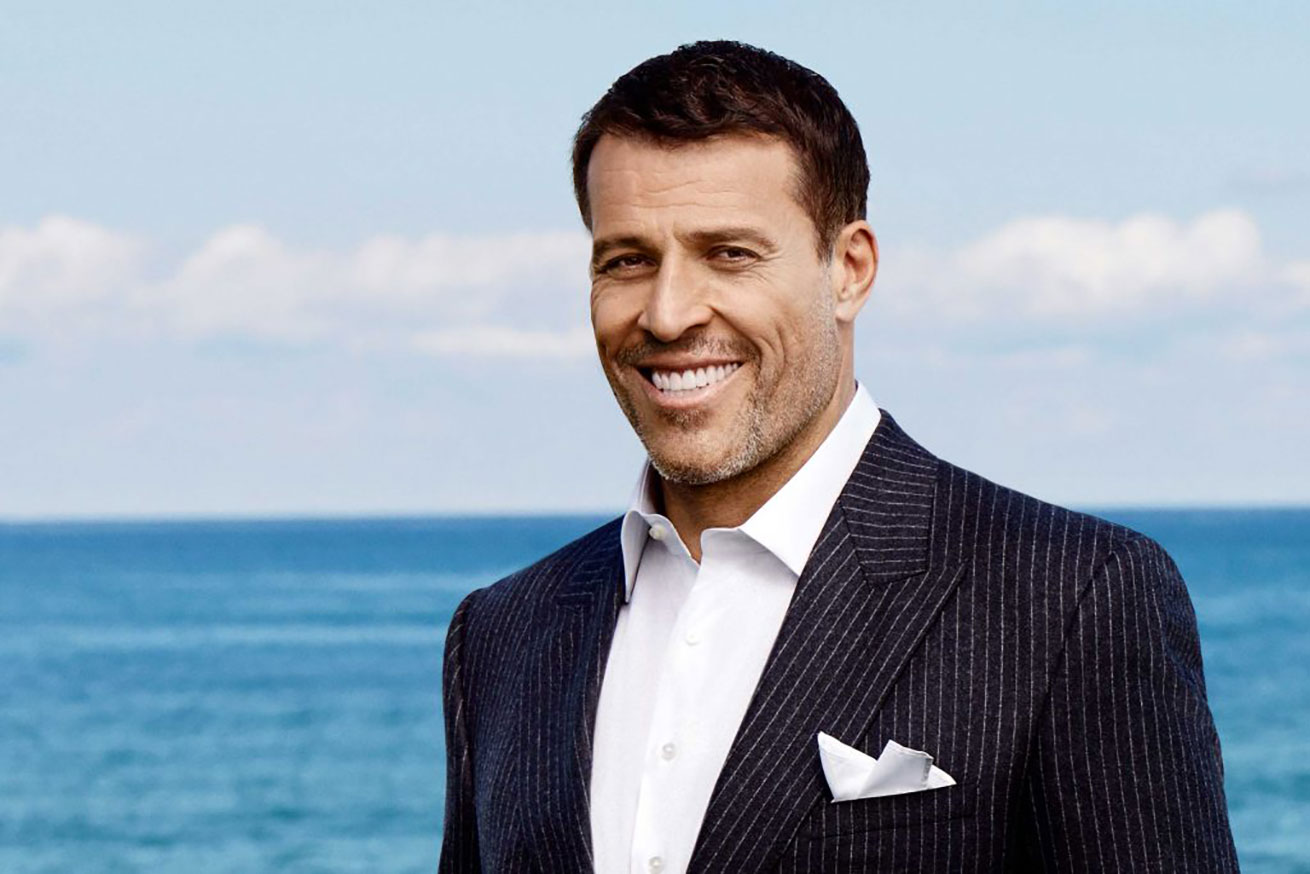
There has also been plenty of media coverage of late discussing the comparisons of the types of properties that can be bought in other countries such The United States and Europe with Sydney prices. The truth is I would never want to live in those other countries. Even though the Sydney property market is out of reach for most, including myself, I am forever grateful there are more affordable sub-markets close to Sydney to allow me to enjoy this wonderful city. Practicing gratitude for what we have now prevents us from seeing any issue moving forward. It is impossible to be angry and grateful at the same time. Overall I feel we are extremely lucky to be able to live in such an amazing and privileged country.
What can you do to tone down the disappointment of not reaching your expectations of buying property in Sydney? Maybe work on a little appreciation in your life. Start focusing on solutions you can control and implement rather than problems that are ultimately out of your control. We all have access to the same resources such as education and advice, it is just a matter of being resourceful. Appreciate the life this country has to offer and start educating yourself on how to enjoy it in your future.
